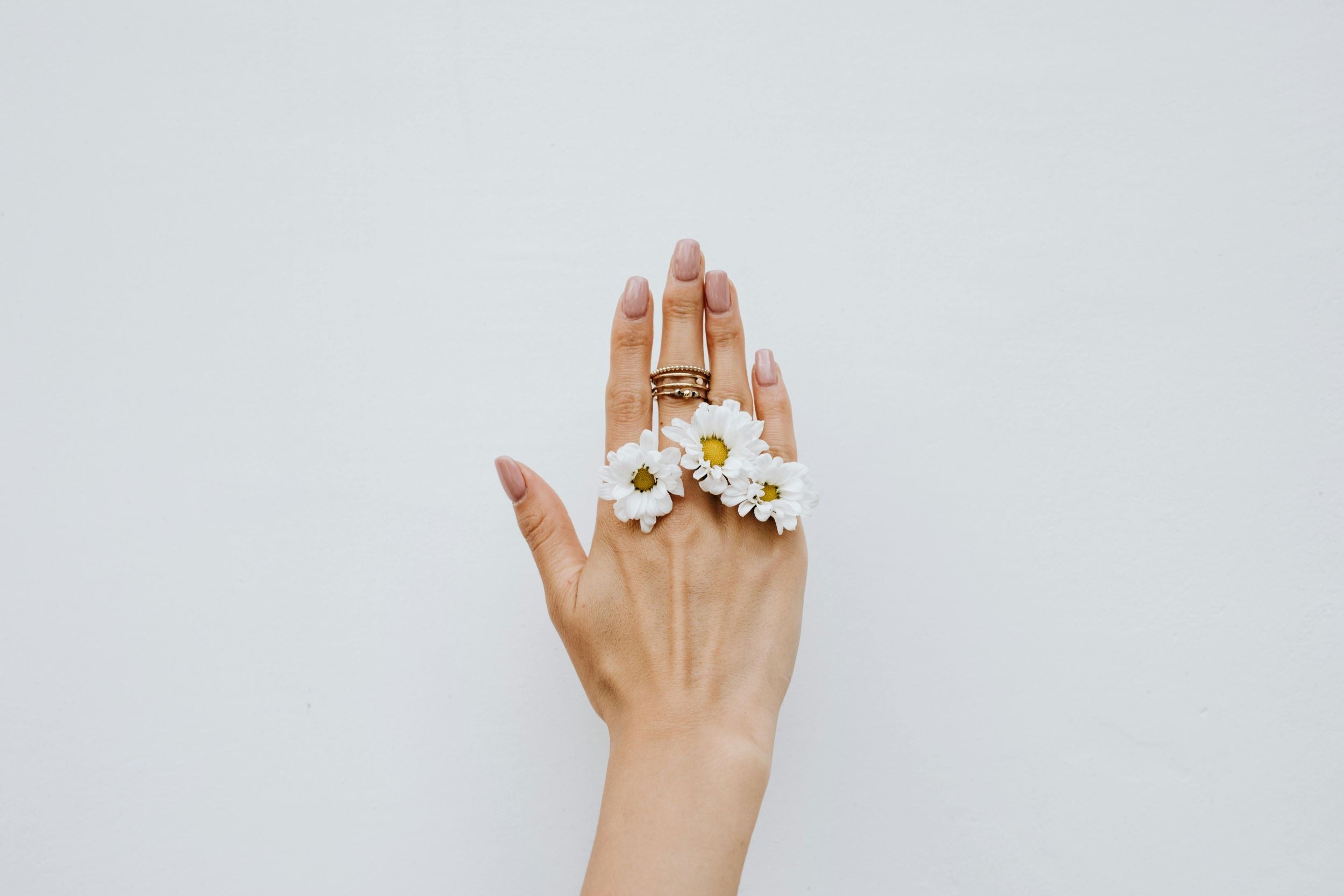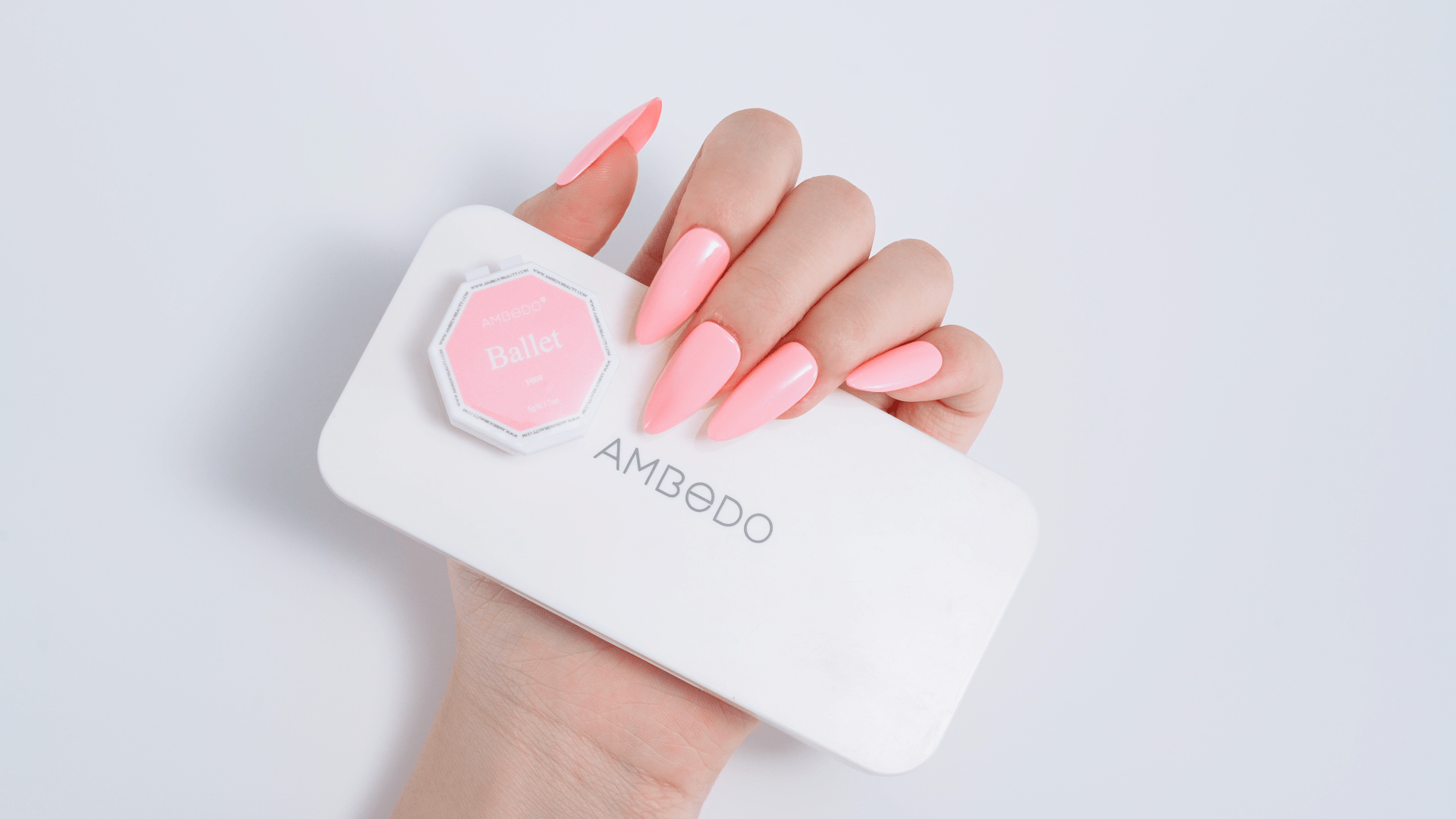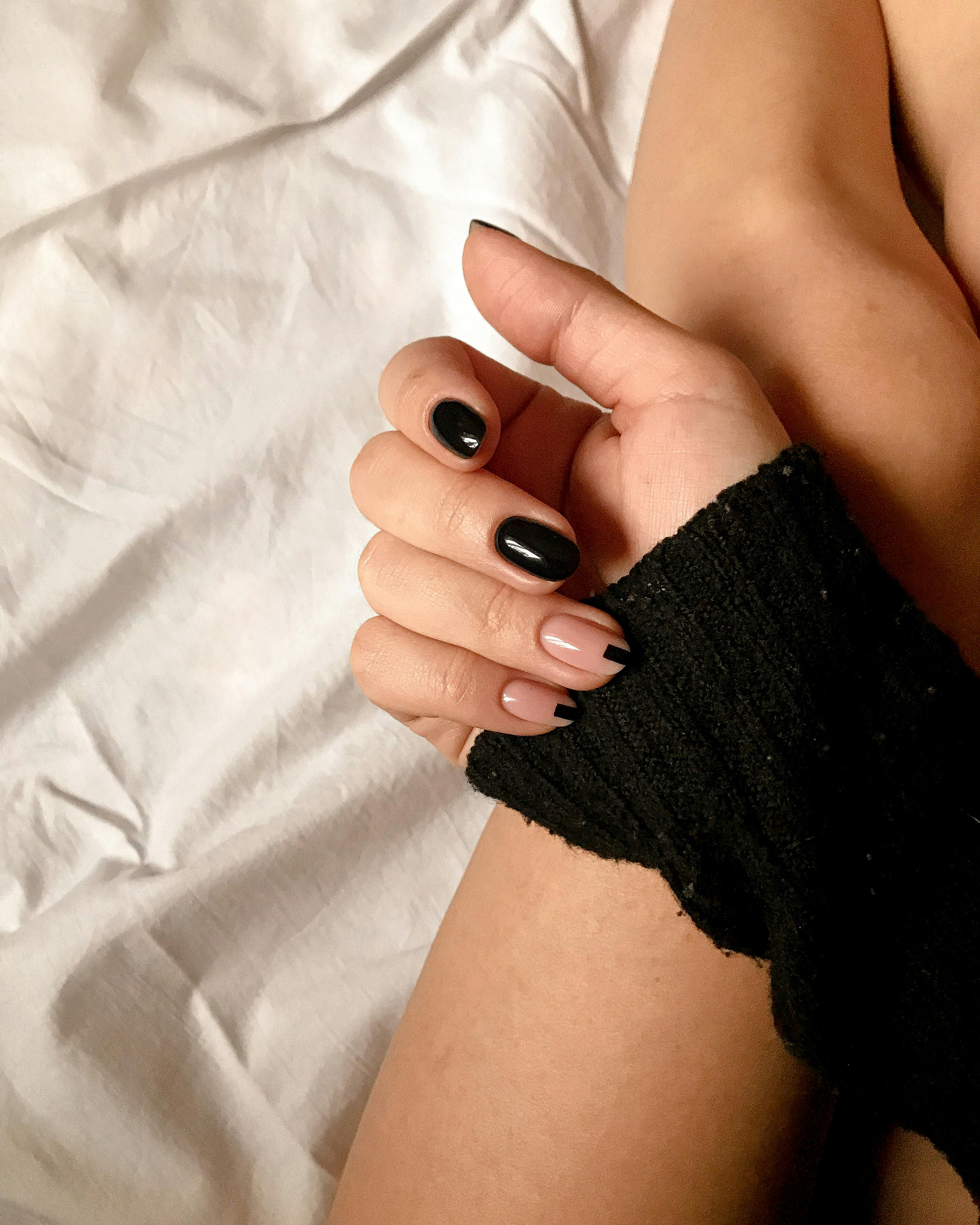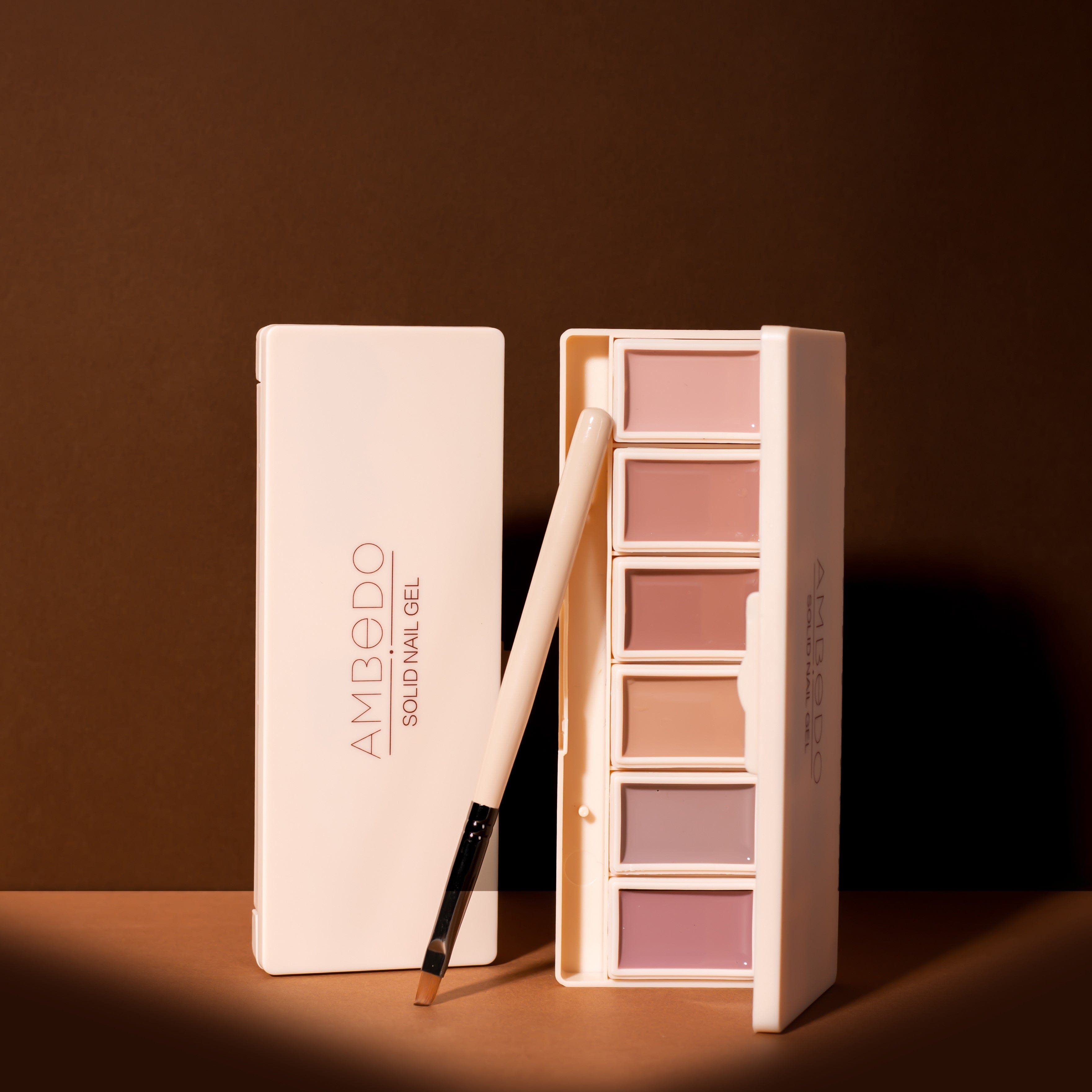
Are Gels Good For Your Nails? (2025 Edition)
Gel Nails Unveiled: The Truth About Safety, Toxins, and Why Ambedo Beauty’s 12-Free Gels Are a Game-Changer
Beauty Meets Science
Gel nails have transformed manicures with their glossy, long-lasting finish. Yet, misinformation about their safety persists. At Ambedo Beauty, we’re committed to transparency. This blog dismantles myths, highlights the science behind gel safety, and reveals how our 12-Free Solid Gels outperform traditional polishes in every way—without compromising your health.

Myth 1: Gel Polish Traps Toxins in Your Nails
The REALITY: Polymerisation Creates a Protective, Inert Shield
When gel polish cures under UV/LED light, it undergoes polymerisation—a process where liquid monomers bond into a solid, non-porous layer. This “armour” seals the nail, preventing chemicals from penetrating the nail bed or bloodstream.
Traditional Polish Risks:
- Remains soft and permeable, allowing toxins like formaldehyde to seep into nails.
- Releases volatile organic compounds (VOCs) as it dries, exposing you to fumes.
Science Backs Gel Safety:
A 2021 Journal of Cosmetic Dermatology study confirmed that cured gel becomes inert, locking ingredients ON the nail surface. Unlike traditional polish, gels don’t degrade over time, ensuring lasting protection.
Myth 2: UV/LED Lamps Are as Harmful as Tanning Beds
The REALITY: Minimal Exposure, Maximum Protection
By the Numbers:
- A full gel manicure = 6–10 minutes under a lamp.
- 250 gel manicures = 10–20 minutes of midday sun exposure.
- LED lamps emit 99% less UV radiation than tanning beds (British Association of Dermatologists, 2022).
Pro Tip: Apply SPF 30 or more to your hands before you apply gels for extra reassurance—though daily sunlight poses far greater risks than occasional gel use.

Myth 3: Traditional Polish Is Safer Than Gel
The REALITY: Traditional Polish Harbours Hidden Dangers
The Dirty Dozen: 12 Toxins Ambedo Beauty Excludes
Ambedo’s 12-Free Solid Gels reject harmful ingredients commonly found in traditional polishes. Here’s why each matters:
| Toxin | Risks | Purpose in Conventional Polishes |
|---|---|---|
| 1. Formaldehyde | Carcinogen; irritates skin, eyes, and lungs | Hardens polish |
| 2. Toluene | Damages nervous system; linked to headaches | Evens pigment dispersion |
| 3. Dibutyl Phthalate (DBP) | Reproductive harm; hormone disruptor | Plasticiser for flexibility |
| 4. Camphor | Causes nausea, dizziness | Adds glossy shine |
| 5. Formaldehyde Resin | Skin irritation; immune system issues | Strengthens polish |
| 6. Xylene | Liver/kidney damage; harsh fumes | Solvent for smooth application |
| 7. Parabens | Hormone disruption; linked to breast cancer | Preservative |
| 8. Fragrances | Undisclosed chemicals trigger allergies | Masks chemical odours |
| 9. Phthalates | Endocrine disruptors; cancer risks | Softens polish texture |
| 10. Ethyl Tosylamide | Limited safety data; potential toxicity | Enhances durability |
| 11. Triphenyl Phthalate (TPHP) | Hormone disruption; developmental risks | Plasticiser and flame retardant |
| 12. HEMA | Severe allergies if uncured | Adhesive for polish bonding |
Why 12-Free Matters:
By excluding these toxins, Ambedo gels eliminate risks of absorption, allergies, and long-term health issues. Traditional polishes, even “5-Free” versions, still contain many of these harmful ingredients.

Myth 4: Nails Need to Breathe, and Gels Prevent That
The REALITY: Nails Don’t Breathe—Here’s Why
One of the most pervasive myths in nail care is the idea that nails need to “breathe.” This misconception has led many to believe that wearing gel polish or artificial nails is harmful because it “suffocates” the nail. Let’s set the record straight:
Nails Are Not Alive—They Don’t Breathe
Nail Anatomy 101:
Your nails are made of keratin, the same protein found in hair. The nail plate (the visible part) is non-living tissue. It doesn’t have lungs, blood vessels, or the ability to absorb oxygen.
Oxygen Supply:
The nail bed (the skin underneath the nail) receives oxygen and nutrients from your bloodstream, not from the air. Gel polish doesn’t interfere with this process because it only coats the non-living nail plate.
Why the Myth Persists
The “nails need to breathe” myth likely stems from misunderstandings about nail health. People often notice their nails becoming brittle or discoloured after removing gels or acrylics and assume it’s because the nails were “suffocating.” In reality, this damage is usually caused by:
-
Improper Removal: Peeling or scraping off gels can strip layers of the nail plate.
-
Over-Filing: Excessive filing weakens nails.
-
Lack of Moisture: Gels and acrylics can dry out nails if not properly cared for.
Gels Actually Protect Your Nails
Far from harming your nails, gel polish can strengthen and protect them:
-
Barrier Function: Gel creates a durable, impermeable shield that prevents water loss and protects nails from external damage (e.g., detergents, bacteria).
-
Less Filing: Gel’s long-lasting nature means fewer manicures, reducing the risk of over-filing.
-
Hydration Tips: Pair gels with regular cuticle oil to keep nails and surrounding skin moisturised.
What Nails Really Need
Instead of “breathing,” nails thrive with:
-
Proper Hydration: Use cuticle oil or hand cream daily.
-
Gentle Care: Avoid harsh filing or peeling.
-
Nutrient-Rich Diet: Biotin, vitamin E, and omega-3s support nail health.

The Durability Advantage: Healthier Nails, Fewer Risks
- Chip Resistance: Gel’s impermeable layer protects nails from water, bacteria, and detergents. Traditional polish chips within days, exposing nails to damage.
- Fewer Touch-Ups: Less filing and acetone use preserves nail integrity.
- Reduced Infection Risk: A 2020 study in Dermatology Times found gel wearers had fewer fungal infections due to sealed nail surfaces.
Eco-Conscious & Cost-Effective: Beauty That Cares
- Less Waste: Fewer salon visits = less single-use tools, and no more nail polish that dries up so quickly at home (who has actually ever been able to use up a whole bottle of nail polish before it dried up?
- Long-Term Savings: Less touch ups between each application
- Vibrant Colour for Weeks: Gel resists fading, reducing the need for frequent reapplication.
FAQs: Your Safety Concerns, Addressed
Q: Can gels cause allergic reactions?
A: Allergies are rare with high-quality gels. Ambedo excludes HEMA, a common allergen, and ensures proper curing for safety.
Q: Do gels weaken nails?
A: Damage occurs from improper removal (e.g., peeling). Always soak gels with acetone-free removers and moisturise after.
Q: What if I’ve heard about “gel polish allergies” online?
A: Most cases involve cheap, uncured products. Ambedo’s professional-grade gels cure fully, minimising risks.

The Science of Safe Application & Removal
For Salons & At-Home Users:
1. Prep Gently: Avoid over-filing nails—this thins them.
2. Cure Thoroughly: Follow lamp timing guidelines to ensure full polymerisation.
3. Remove Safely: Soak with acetone-free remover; never peel.
Pro Tip: Pair gels with cuticle oil to maintain nail health between manicures.
Conclusion: Embrace Safer, Stunning Nails
Gel nails aren’t just a luxury—they’re a smarter, safer choice. With Ambedo Beauty’s 12-Free Solid Gels, you gain:
- Unmatched Safety: No nasties, no porous layers, no compromises.
- Durability: Chip-free nails for up to 21 days.
- Eco-Friendly Appeal: Reduce waste and save money long-term.

Sources Cited:
British Association of Dermatologists (2022). UV Nail Lamp Safety Guidelines.
Journal of Cosmetic Dermatology (2021). Polymerisation and Gel Polish Safety.
Dermatology Times (2020). Gel Manicures and Nail Health.
American Academy of Dermatology. Nail Health: Myths and Facts.
Journal of Cosmetic Science (2020). The Science of Nail Plate Structure and Function.









Leave a comment
This site is protected by hCaptcha and the hCaptcha Privacy Policy and Terms of Service apply.